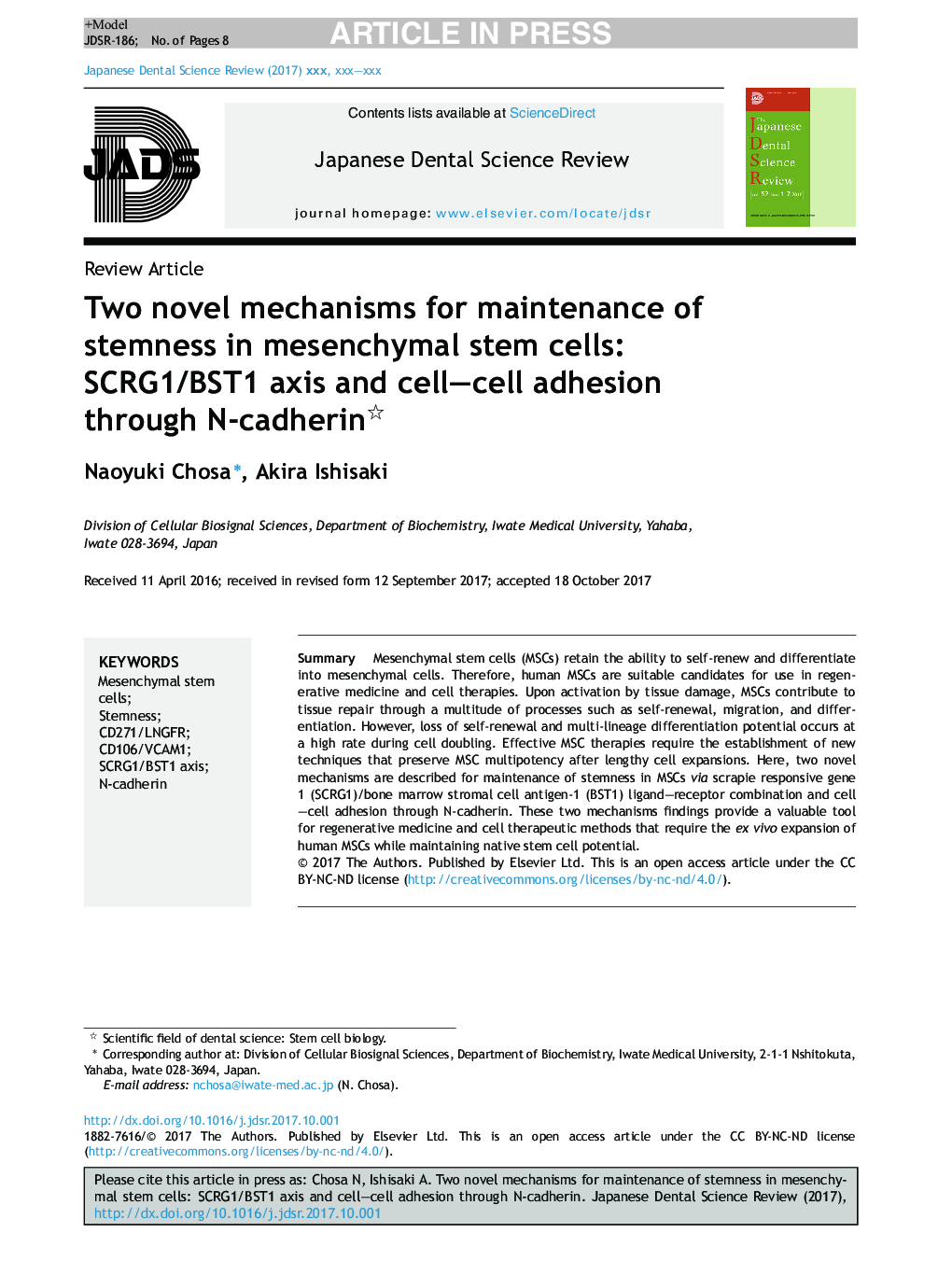| Article ID | Journal | Published Year | Pages | File Type |
|---|---|---|---|---|
| 8698135 | Japanese Dental Science Review | 2018 | 8 Pages |
Abstract
Mesenchymal stem cells (MSCs) retain the ability to self-renew and differentiate into mesenchymal cells. Therefore, human MSCs are suitable candidates for use in regenerative medicine and cell therapies. Upon activation by tissue damage, MSCs contribute to tissue repair through a multitude of processes such as self-renewal, migration, and differentiation. However, loss of self-renewal and multi-lineage differentiation potential occurs at a high rate during cell doubling. Effective MSC therapies require the establishment of new techniques that preserve MSC multipotency after lengthy cell expansions. Here, two novel mechanisms are described for maintenance of stemness in MSCs via scrapie responsive gene 1 (SCRG1)/bone marrow stromal cell antigen-1 (BST1) ligand-receptor combination and cell-cell adhesion through N-cadherin. These two mechanisms findings provide a valuable tool for regenerative medicine and cell therapeutic methods that require the ex vivo expansion of human MSCs while maintaining native stem cell potential.
Related Topics
Health Sciences
Medicine and Dentistry
Dentistry, Oral Surgery and Medicine
Authors
Naoyuki Chosa, Akira Ishisaki,
